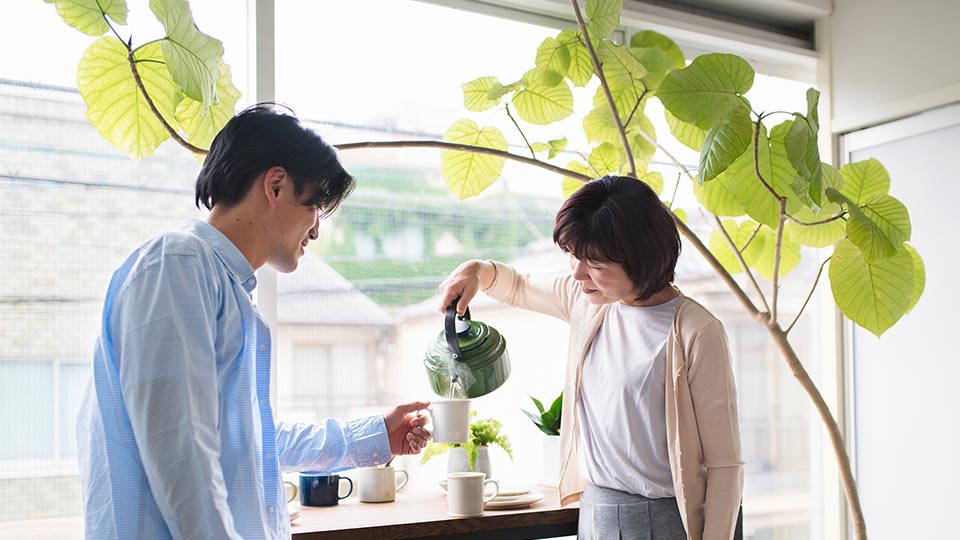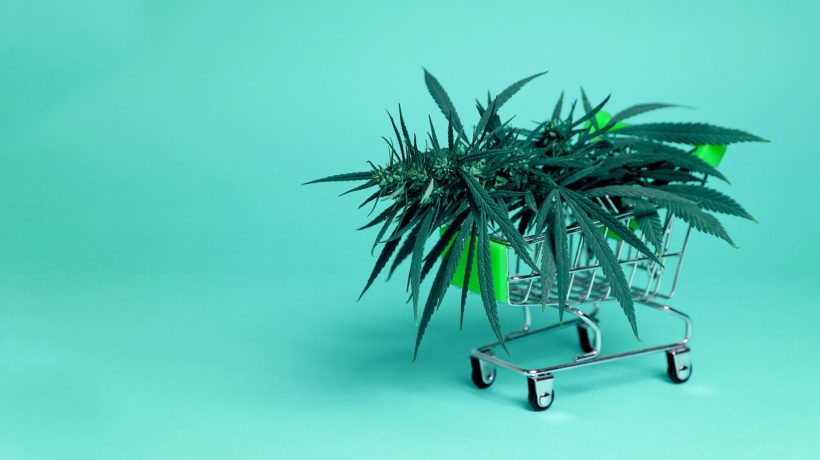As cannabis becomes increasingly legalized in the States and, therefore, accepted for both its health and recreational benefits, a situation has developed that historically has never been an issue.
As more people come out of the proverbial “green closet,” so, too, are more conversations about cannabis.
Which now includes how to talk to your kids about your own cannabis use, as well as theirs.
Having these discussions is never easy, and this is especially true when you’re the one getting caught with a pre-roll in your pocket that you can’t justify as “holding it for a friend.” So rather than lie to your children about enjoying a plant that has remarkable health benefits, tell the truth.
But that’s easier said than done. We know just as much as anyone how hard telling the truth can be, and that telling your kids about your use of something considered an illegal substance by the government may not go well, especially if their own teachers preach the same form of prohibition.
So we sat down with Melissa Brohner-Schneider, LMFT, a licensed family therapist and host of the popular podcast, The Other F Word-Conversations About Failure , to help us get into the nitty gritty on talking to your kids (and other family members) about cannabis.
Q
What are great ways to talk to my kids about cannabis?
A
Start by sharing some clear facts. This will be helpful in clearing up any misconceptions.
Explain why cannabis is now legalized, for both medicinal and recreational use, and talk about the difference between use and abuse. Educate about the difference between adults obtaining cannabis legally from a licensed dispensary vs. the black market, where they can get unsafe products that haven’t been tested for their safety by accredited laboratories and organizations.
The culture surrounding cannabis has often been glamorized in pop culture, but emulating certain behaviors can be risky. It’s important to stress how crucial responsible use is.
Talking about misconceptions is also imperative.
Take the time to be curious and listen to what your children perceive cannabis is. Odds are it will be a mixed bag of misconceptions and truths. Children are often misinformed, due to peers or social media, so try to clear up any confusion and educate, educate, educate!
As far as talking to teenagers who may be starting to rebel, you’ll want to foster a sense of safety and trust in your relationship. Come from a a place of curiosity. Listen to their ideas. Try to be open and non-judgmental.
This might be one of the biggest challenges as a parent, especially if you are worried about their safety and judgement out in the world.
It is okay to tell your teenagers that you don’t want them to use, but help them understand why. If you just tell them it’s unacceptable and that’s the end of the story, you risk shutting them out of an important dialogue. It’s best to cultivate the ability to talk about these hard topics and help your teen to think for themselves after having more facts.
Some parents worry that just by talking about cannabis, you’re giving your teen permission to use, but this isn’t true; you’re helping to educate them so they can make smarter choices as they navigate their adolescence.
That’s our job as parents.
Not to control, but instead to guide in hopes of building critical thinkers and good problem solvers. This is new territory to traverse, so be open to hearing their thoughts, ideas, and experiences. Once they feel heard, they will hopefully be more open to hearing you, trusting your guidance, and feeling less of a need to rebel against your wishes and rules.
We want our teens to have the tools to navigate life, and this is a brand new world for all of us.
Of course, if your child is misusing or abusing any substance, you should do everything you can to get them the help they need.
Watch for warning signs, such as changes in academic functioning, peer isolation, mood instability, unusual secretive behavior, not caring about their usual interests or relationships, and erratic behavior, just to name a few.
Remember some of these symptoms are typical for adolescents not abusing a substance, so work hard to get more information before making accusations. Communicate concern and care, not judgement or shame.
Therapy and drug treatment is readily available for teens and families in need.

Q
How do I talk to my own parents about cannabis?
A
A good question to ask yourself is why do you want your parents to know?
Is it to share an important part of your life to bring you closer? Or is it that you believe cannabis can help that family member and you hope to share your experience and insight to expand their thinking on the medicinal benefits? Or perhaps you want their approval?
We all have family dynamics that impact how vulnerable and transparent we want to be, so do some self-exploration to better understand your motives.
Know that we can’t control how other people think or react, so prepare yourself for different outcomes of the conversation. Be sensitive to your parents, who were probably raised in a different generation, and how difficult it might be for them to reverse the stigma they have always known. This may require some patience and extra understanding on your part.
Ask for that, and model it as well.
Also, if addiction runs in the family, this might be a more loaded conversation, so try to approach it with empathy and compassion.
The most important part is the communication, so be clear from the beginning that you are sharing something important and would hope it can be the beginning of a more open conversation, free of judgement or shame.
Additionally, it might take a while for acceptance to come, so hang in there! Get support from friends who may be struggling with the same issue, or other challenging family conversations.
And, if the shift in perspective happens, enjoy the fact that you can bond with your parents in a new way.

Q
What steps can parents take to be responsible cannabis consumers?
A
The most important step is to have clear boundaries about usage and always remain in control. Don’t burden your child to have to worry or take care of you.
You’re the adult. Be responsible and moderate.
Because cannabis is now legal, it might feel like a free-for-all in terms of when and how much to use, but it is still important to be safe and know your limits.
Always keep safety in mind and model that behavior for your children, so don’t drive under the influence and stick to the prescribed dosage if used for medical purposes.
Additionally, store your cannabis in a safe place, away from children. Something like edibles can easily be mistaken for candy, so it’s imperative to take strong precaution to avoid this from ever happening.
Q
How can parents caution their children about cannabis when they themselves are consumers?
A
This is a tough question, and probably one of the newer issues. But by just acknowledging this discrepancy, it helps validate this mixed message.
It’s important to make the distinction between an adult brain, which is fully developed, and a child’s brain, which is not fully developed until the age of twenty-five.
Adult brains have the capacity to make sound decisions, solve problems, and control emotions (ideally), while children are still learning these skills as their brains develop.
This is similar to the thinking behind alcohol use. Keeping a child’s safety, health and well-being in mind is the primary goal for parents, so helping a child understand that this is at the root of the issue is quite important.
While there is new research about the effects of cannabis on the developing brain, and on specific medical issues such as childhood epilepsy, it’s still a growing field with limited information.
So it’s best to be more cautious and prioritize the child’s development when talking to them about your cannabis use and even their own.
Keep in mind, there is still a stigma associated with using cannabis, regardless of whether it’s medicinal or recreational. One way to help fight this stigma is to carve time and space in your own personal life to help educate your peers and family members, as well as learn as much as you can about the plant and its benefits so you can speak confidently and authoritatively.



